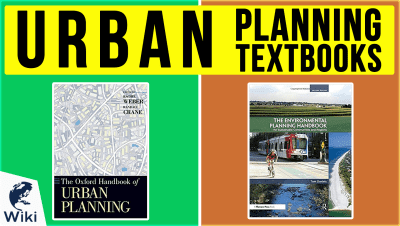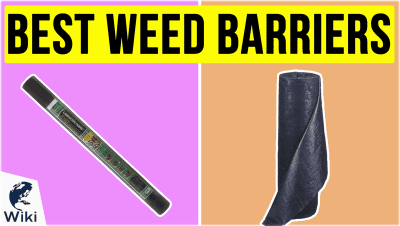5 Organizations Working To Empower Voters Across America
The US prides itself on being a democratic nation, but too often it fails to live up to that ideal, with government malfeasance and other systemic inequities preventing citizens' fair and equal participation in the electoral process. Thankfully, a number of organizations are working to restore power to the people. The ones here operate throughout the country, striving to ensure that everyone has a voice and the ability to use it. This video was made with Ezvid Wikimaker.
5 Groups Promoting a Stronger US Democracy
| Organization | Headquarters Location | Mission |
|---|---|---|
| Voters Not Politicians | Lansing, Michigan | Defend and promote policies that strengthen democracy |
| Hip Hop Caucus | Global | Empower communities impacted first and worst by injustice |
| The League of Women Voters of Maine | Portland, Maine | Encourage informed and active participation in government, work to increase understanding of major public policy issues, and influence public policy through education and advocacy |
| Alabama Arise | Montgomery, Alabama | Promote state policies that improve the lives of low-income people |
| FairVote Minnesota | St. Paul, Minnesota | Work for a healthier democracy through public education and advocacy of electoral reform |
Can Ranked-Choice Voting Change US Elections?
Issues With American Democracy
- Gerrymandering
- Money in politics
- Systematic racism
- Uninformed voters
- Unequal representation in presidential elections
- Media bias
- Voter suppression
- Electoral college
Voter Turnout In Presidential Elections
According to the United States Census Bureau
| Year | Total Voting Age Population (V.A.P.) | Votes Cast | Percentage of V.A.P. That Turned Out |
|---|---|---|---|
| 1972 | 140,777,000 | 77,625,000 | 55.1% |
| 1976 | 152,308,000 | 81,603,000 | 53.6% |
| 1980 | 163,945,000 | 86,497,000 | 52.8% |
| 1984 | 173,995,000 | 92,655,000 | 53.3% |
| 1988 | 181,956,000 | 91,587,000 | 50.3% |
| 1992 | 189,493,000 | 104,600,000 | 55.2% |
| 1996 | 196,789,000 | 96,390,000 | 49.0% |
| 2000 | 209,787,000 | 105,594,000 | 50.3% |
| 2004 | 219,553,000 | 122,349,000 | 55.7% |
| 2008 | 229,945,000 | 131,407,000 | 57.1% |
How We Fix American Democracy
In Depth
Time and time again, elections demonstrate the importance of an informed, active electorate. Those same elections, however, also show how getting voters registered, educated, enthused, and to the polls is easier said than done. The following organizations, in no particular order, are doing an excellent job of just that through advocacy, organizing, and resource development.
Starting off at #1 is Voters Not Politicians. Founded by activist Katie Fahey in 2016 amidst concern over gerrymandering in Michigan, the non-profit advocacy organization works to strengthen democracy by engaging voters in effective citizen action. Its platform supports free and fair elections, direct democracy, ethical governance, removing money from politics, and an independent judiciary.
Voters Not Politicians successfully collected over 425,000 voter signatures for a ballot initiative that amended the Michigan state constitution to form an independent redistricting commission. The initiative ultimately passed in 2018 with 61% of the vote. Today its volunteers are working on efforts to improve voting access, voter registration, and government accountability.
The initiative ultimately passed in 2018 with 61% of the vote.
At #2 is Hip Hop Caucus. The group is a national nonprofit with a goal of promoting political activism among younger US voters through hip-hop music and culture. The focus of its efforts is promoting social and political equality by strengthening democracy, fighting for civil and human rights, addressing climate change and environmental justice, and striving for economic empowerment.
A member of the Black Leadership Forum and the Leadership Conference on Civil and Human Rights, Hip Hop Caucus runs a campaign called Respect My Vote. Volunteers seek to inform voters about how to vote in their area, the potential impacts of elections, and how the issues affect day-to-day life.
Coming in at #3 is the League of Women Voters of Maine. Founded in 1920 under the umbrella of the National American Woman Suffrage Association, the group has long worked to improve the government and get communities engaged in the decision-making process. Over the years, it has campaigned for social security, education, and more.
Over the years, it has campaigned for social security, education, and more.
Today, its efforts are largely focused on advancing initiatives to expand voter participation, including pushes for ranked-choice and increased early voting, a national popular vote, and automatic registration. It also provides resources to inform citizens about election issues and their potential consequences, and ensure people are properly registered to cast a ballot.
At #4 is Alabama Arise. The statewide non-profit, non-partisan group is comprised of a coalition of congregations, organizations, and individuals seeking to advance policies that address poverty. It provides analysis on current and pending state policies that affect the impoverished, statewide organizing on economic issues, and tools for citizen advocacy.
The aim of Alabama Arise is to promote state policies that improve the lives of low-income people. The group's goals include creating a fair tax system, establishing a restorative criminal justice system, passing a state budget that provides adequate human services, ensuring safe, accessible, and affordable housing, and guaranteeing wages and policies that provide economic security for all.
The group's goals include creating a fair tax system, establishing a restorative criminal justice system, passing a state budget that provides adequate human services, ensuring safe, accessible, and affordable housing, and guaranteeing wages and policies that provide economic security for all.
Wrapping up the list at #5 is FairVote Minnesota. The non-profit, non-partisan grassroots organization was founded in 1996 in an effort to foster a healthier democracy through public education and advocacy for electoral reform. Its focus is promoting inclusive voting systems that foster greater choice and voice through competition, participation, and representation.
FairVote Minnesota works specifically to advance ranked-choice voting. It ran effective campaigns in 2009 and 2011 to implement the approach in local elections, and assisted in successfully defending its constitutionality in the Minnesota Supreme Court. Initiatives are underway across the state to get the topic of ranked-choice voting traction in 2020.













